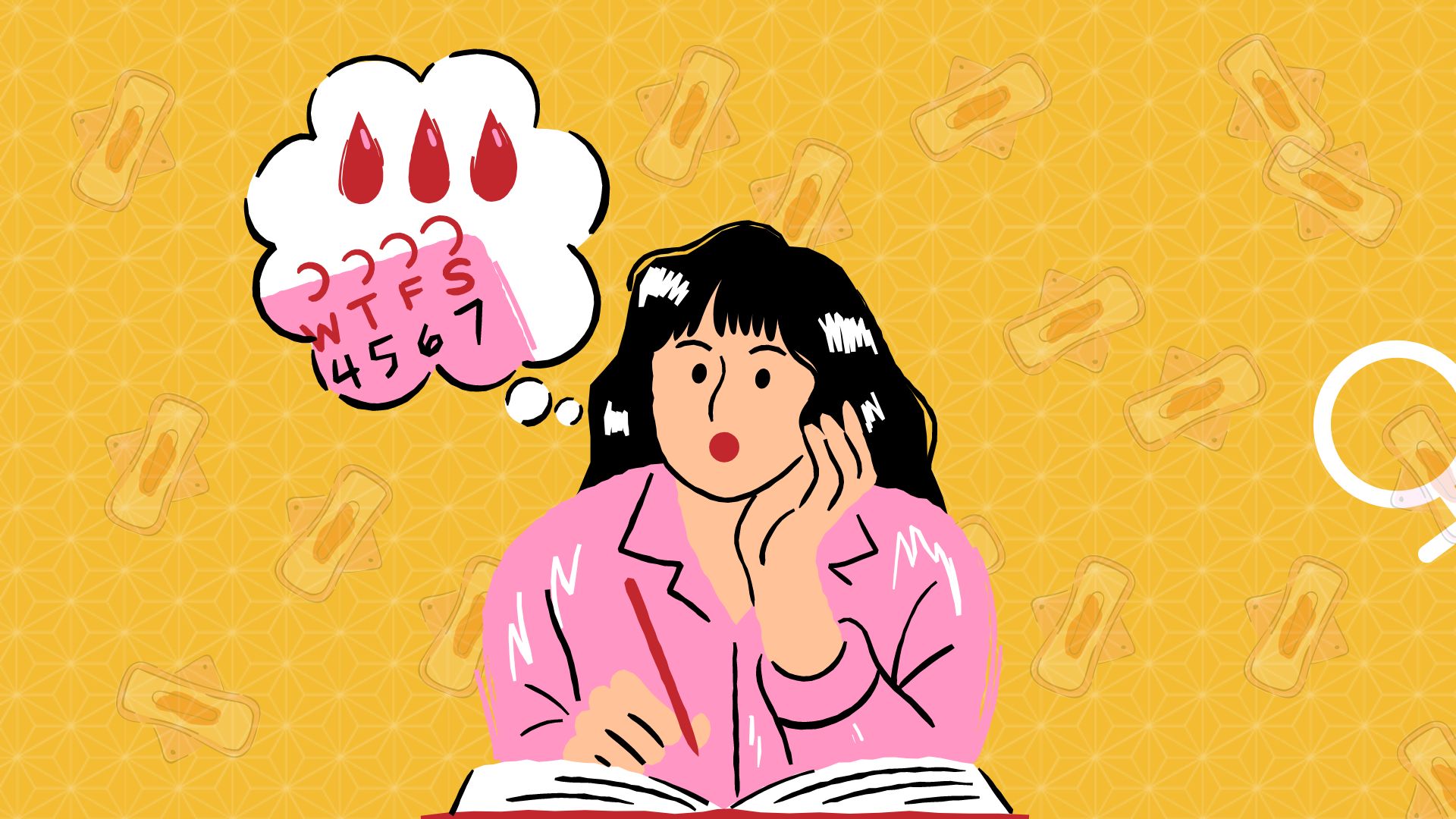Fathia Oyeleke is pursuing a degree in Quantity Surveying at Obafemi Awolowo University. Within this academic journey, she has completed eight exams at the institution; however, she has unfortunately experienced the challenge of enduring menstrual cramps during certain exam periods
Oyeleke’s experience is not unique; globally, over 50%of women encounter discomfort during their menstrual cycles. This discomfort can vary, but it is described as extremely painful for most women.
For individuals like Oyeleke, navigating their exams while experiencing menstruation becomes difficult. The distress they experience during this time makes it challenging for them to perform at their best, often lacking a safe space to address the extent of their pain.
Naturally, the medicine has coined a term for the torment — Dysmenorrhea, yet a definitive cure remains elusive. Astonishingly, some of these women are even cautioned against seeking solace in pain-relieving medications. In simpler terms, these distressing episodes are known as menstrual cramps.
For some women, the ordeal entails excruciating pain through their lower backs and thighs, triggering involuntary vomiting and drenching sweats.
In severe cases, some may even experience fainting spells or enduring dizziness while grappling with digestive disruptions and enduring intense headaches for a prolonged week. This turmoil often intersects with crucial moments, like the heat of examinations, adding an extra layer of challenge.
“The pain is stiffer than stomach ache, stomach pain or the combination of both,” Oyeleke said, adding that she always feels something strolling around and parading her tummy, causing her discomfort that she has been advised not to use drugs to alleviate.
“For me, I experience menstrual cramps in the entire five days of my flow. It means that I get uncontrollably scared of uncertainty and unhappy at least once a month, “she discloses.
The examinations are an organised measurement of whether the students have grasped what they came to the university to learn, and it lasts for at least a month.
And Oyeleke’s menstrual flow will most likely come during the period. But anytime it does, the cramps, its partners follow. She always knows that she’s up for something ungentle.
“Menstrual cramps are not enough excuse to fail an exam. So, I rough it amid that pain. It conditions me into forgoing some practices I prefer doing during the period“, she recounts.
Oyeleke wouldn’t participate in night group reading and brainstorming with her coursemates during exams when she was on her period. The pain and straits will condition her to nurse the stomach torments she often experiences alone.
An identical manifestation of menstrual cramps during examination between Oyeleke and two other female students of the University of Ibadan, who don’t want their names to be published, is that writing tests amid the pain of menstrual cramps give a dire psychological downturn similar to that of forced abortion.
We need to be strong during the exam period to pull through
“Anytime exam is upon us and timetable is released, I am concerned about the ones that will fall into or around the time. So, I ensure I prepare extra hard for those because it’ll be likely impossible to be my full self at the said period”, Oyeleke explains, detailing how she’s navigating the gender eventuality.
Even though she and many other women and girls have been advised against painkillers to alleviate cramps, she resorts to using them when the pain is multiplying, and she has a laborious exam to get over the line.
The after-effect sometimes would mean that the pain would not subside, and she’d have to endure it for the remainder of her menstrual flow. She would sit for exams amid the quadruplets of discomfort, fear, anxiety and unhappiness.
What is most striking is the non-uniformity of the cramps. ‘we don’t feel it the same way. There was a time I saw a lady vomiting. I know of another woman who would have to be admitted to the hospital every month because the pain for her is always too severe than she could singly handle.” And sometimes, when she, alongside other women, talks about it and they contextualise what they feel, she often feels defeated that hers is even learning.
This pain they have no control over has rebranded their personalities in certain quarters. Some people have seen them as one who gets sick at the slightest surfacing of examination.
“I could be shaking repeatedly when I’m seated in the exam hall. Still, exam has to go on”, Oyeleke courageously maintains.
We still can’t speak out
Oyeleke believes that because women have been conditioned not to voice their intrapersonal pains in public, she and many other women cannot bring such conversations as this to the open.
“Even some of our fellow women cannot relate because they don’t experience it. Now, imagine us talking about it alongside men who do not even understand the realities of menstruation. How can a lady dealing with menstrual cramps explain to one who doesn’t know what it’s all about? Or that she could not prepare for this or that exam because she was contending an unknown pain over the night that precedes the exam?” she asked.
To her, writing exams and having menstrual cramps is the worst feeling, but one she has no choice but to endure.
“We can’t abandon an exam because of menstrual cramps even so we can’t underplay the severity of the pain. I can’t even advise anyone on how to handle cramps during an exam.”
She believes that her approach of pre-reading for courses that coincide with her menstrual cycle might not be practical for those who prefer intense, last-minute studying hours before an exam or tend to forget material they reviewed a few days before.
Fathia Oyeleke, a Quantity Surveying student at Obafemi Awolowo University, struggles with menstrual cramps during exams. Like over 50% of women globally, she faces severe discomfort during her menstrual cycle, exacerbating the stress of exam periods. The pain, referred to as Dysmenorrhea, can be debilitating and includes symptoms such as lower back pain, vomiting, dizziness, digestive issues, and intense headaches.
Oyeleke shares her personal experience, recounting how menstrual cramps affect her performance and participation in group study sessions. Despite advice against using painkillers, she occasionally resorts to them out of necessity. The inconsistency and intensity of menstrual pain vary among women, making it a uniquely challenging ordeal.
Oyeleke highlights the social stigma and lack of understanding regarding menstrual pain, noting that societal conditioning discourages women from voicing their struggles. She emphasizes the need to prepare more rigorously for exams coinciding with her menstrual cycle to compensate for the inevitable physical and psychological toll. Yet, the pain often persists, requiring immense resilience to manage both academics and health.






